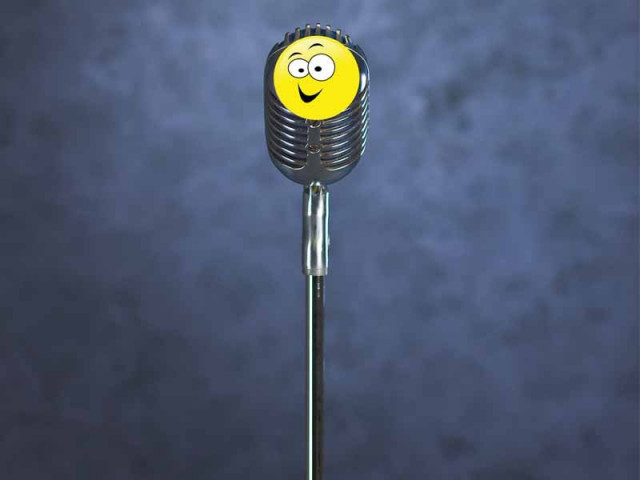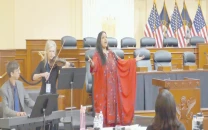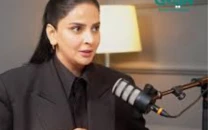Improvisation: Humour has it
Pakistan’s funny men offer some insight into the art of improvisation.

Before Saad Haroon’s troupe Blackfish brought improvisational comedy to town 10 years ago, our only understanding of this genre came from watching the popular show “Who’s Line Is It Anyway?” But that show too was restricted to a select audience who firstly, could afford cable television, and possessed enough cultural capital and exposure to understand those anglicised jokes.
The only comedian that Pakistani audiences till then saw live was Umer Sharif with his jokes and punchlines on wives, mothers-in-law and make-up, marking the beginning of Pakistan’s stand-up comedy and improvisation.
Popular host and comedian Azfar Ali, who now hosts a local rendition of “Who’s Line Is It Anyway?” clarifies that stand-up and improvisation are two entirely different genres of comedy. “It’s like comparing a talk show with hosting. The former is scripted, the latter is not. And stand-up comedians can’t always do improvisations.”
While Ali believes “there’s no art to it, it’s all about the gift of the gab,” Saad Haroon — perhaps the only improvisation trainer in the country — feels otherwise. “It can be learnt. Of course, you must have the drive and talent but even Steve Martin, the greatest comedian of our times, admits that it was sheer hard work that got him there,” explains Haroon. “As a layman, you think it’s all improvised but there are structures and written rules that once you’re trained you can see. So once you look closely it’s not that difficult and that’s why I keep cheering people to look into it and not get scared.”
New kid on the block Ali Gul Pir — who works with both Ali on television and Haroon in theatre — also reveals that improvisation is all about playing certain games and practicing how to think on your feet. Pir identifies three core principles for making it through: “A personal sense of humour, of course, timing and flexibility.” Since improvisations are all about teamwork, chemistry between the players is important. “The most important rule is to work as a team,” stresses Ali. “You can’t say no or ask a question. You must respond with a statement to allow for the story to grow.”
Ali believes that trying to get a female in the troupe is a difficult task: “It’s hard finding women in humour, world over, since most jokes are centred on sex and bathroom humour.” Yet he agrees that women like Bushra Ansari, Zeba Shehnaz and Huma Dilpazeer have managed to stand out. However, when Haroon started out with Blackfish, he managed to integrate now actor Sanam Saeed and psychiatrist Ishma Alvi very well into his troupe.
Soon Haroon plans to revive his troupe but not under the Blackfish banner. “It will be a small troupe and show wise, be more technical and theatrical,” explains Haroon, adding that the biggest challenge for him had always been formulating an environment for improvisations. A film graduate, he went abroad routinely to get training and take classes to learn and refine his craft.
Needless to mention, rules or no rules, improvisations are challenging since a lot depends on audiences’ responses, something that has often set Haroon completely off in places like Lahore that don’t always get his urbane jokes.
“To be effective, one needs to create humour from the simplest things in life,” points out Ali, who has taken Haroon’s model and took it to the masses with broadcasting on television. “We have to stop making everything about the classes,” he adds, referring to how esotericist the stand with Haroon and Blackfish was. “Your real audience is in the masses and people are starved for entertainment. We need to laugh. We have forgotten how to laugh as a nation. The fact that our comedies are being aired by news channels is a testimony to this fact.” And the pioneer Haroon agrees. “I see the scope of improvisation changing drastically. Young kids are taking it up and creating their own troupes, which is great. But once we see a long form improvisation in Urdu, we will know that it’s arrived!”
Published in The Express Tribune, August 15th, 2011.



















COMMENTS
Comments are moderated and generally will be posted if they are on-topic and not abusive.
For more information, please see our Comments FAQ